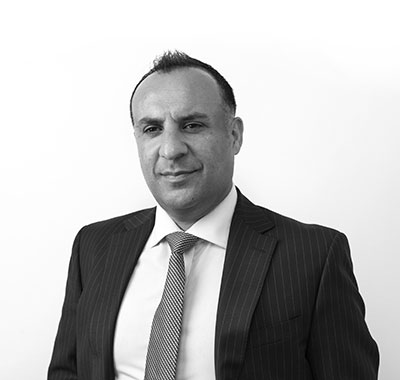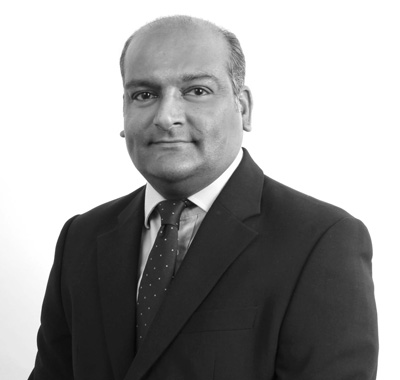Robbery Specialist Solicitors
Robbery is a serious criminal offence. If you find yourself accused of committing robbery, it is essential that you have expert criminal defence on your side.
At JD Spicer Zeb Solicitors, our criminal defence lawyers regularly represent a wide range of clients facing robbery charges. Our experience and specialist expertise with these types of serious and complex offences allows us to offer first-class legal advice and support through all stages of criminal proceedings, protecting your legal rights and giving you the best possible defence.
With a wide range of languages spoken across our criminal defence team, we can offer clear, effective legal advice to people from all backgrounds. We have an exceptional reputation for successfully representing clients facing all types of robbery charges, with many of our clients coming via recommendations from previous clients we have helped.
Our robbery solicitors provide:
- 24/7 legal support in person and over the phone, 365 days a year
- Representation anywhere in England or Wales
- Accredited Police Station Representatives to support you during a police interview
- Clear, effective legal advice in any language (see our languages spoken)
Get in touch
Why choose JD Spicer Zeb?
- 1000s Cases Dropped
- 24/7 Emergency Phonelines
- 100s Years Combined Experience
 Read all Reviews
Read all Reviews
Recent Cases
There is limited recourse for you if you are falsely accused. Click a selection of the cases we have covered. The best thing you can do is to instruct an excellent solicitor from the outset.
Speak to robbery specialist solicitors today
For a free initial consultation on your legal position and the available options, contact our local offices in London, Birmingham or Manchester.
Need immediate legal support? Our accredited Police Station Representatives are available 24 hours a day 365 days a year. Please use the emergency numbers listed at the top of the page for on-the-spot specialist legal representation for robbery charges.
Our expertise with robbery
Robbery offences are serious criminal offences that can carry severe penalties if you are convicted; including long sentences of imprisonment. It is therefore essential for you to have specialist legal advice and support if you are interviewed, arrested or charged in relation to any type of robbery offence.
With more than 45 years’ experience representing clients facing serious criminal charges, including for robbery offences, we know how to put together the most effective defence possible under even the most challenging circumstances.
We have extensive experience representing clients in both Magistrates’ Court and Crown Court and our team includes a number of accredited police station representatives, meaning we can also provide 24-hour police station representation. Additionally, we have strong links with many of the country’s leading robbery defence barristers, meaning we have the resources to provide you with the strongest defence.
JD Spicer Zeb is Lexcel accredited by the Law Society, meaning we meet the highest levels of good management and customer care set by the Law Society of England and Wales. We have also received accreditation from the Law Society for Criminal Litigation
If you have been arrested or charged in relation to a robbery offence, you can contact us 24 hours a day, seven days a week.
How can we help?
Common questions
We always work with the most experienced and best leading UK barristers, KCs (Kings Counsel). We cover all criminal cases 24/7 at the police station and court. Offices in London, Birmingham, and Manchester cover cases across England and Wales. We can offer Legal Aid and affordable Private fee agreements. We can see you the same day, including virtually. Our Senior Partners supervise all of our cases.
How quickly do you respond?
We respond quickly even during out of hours. We do not get our work by paying for online adverts but based on the fact that few criminal law firms can match our 45 years of experience. Most of our cases are still from word-of-mouth recommendations from satisfied clients. We are called daily by dissatisfied clients from firms with less experience than us. We respond very quickly to new enquiries. We know what clients seek and so we update clients rapidly.
Can you get cases dropped?
Yes, read about the recent cases we've helped our clients with here.
We always keep you updated and give straightforward advice. We will get cases dropped early where the case is weak or should not be prosecuted. We will be upfront with you about where you can benefit from a good result with an early guilty plea, such as a discount on your sentence. As we work on cases across all levels with clients from all walks of life, we are excellent at giving clear, spot-on advice. As an established firm, we can allocate a whole team to your case often at short notice to secure evidence to minimise the damage to you.
Have you won any awards?
OUR PROFESSIONAL BODY THE LAW SOCIETY AWARDED US IN OCTOBER 2020 WITH THE EXCELLENCE IN CLIENT SERVICE AWARD AND STATED -
"JD Spicer Zeb demonstrated a clear commitment to client service through their work with vulnerable and diverse individuals in what can be severely traumatic circumstances".
Do you offer free consultations?
Where it is possible, we aim to provide an initial consultation to you. If we can speak to you, we can if required inform you about –
- Whether we can take the case on and our relevant experience.
- Public and private funding benefits.
- Assistance in applying for legal aid where we are likely to accept instructions.
- An outline of options in police interview only. We will not advise you on which option to adopt.
- Providing our free written guide explaining the police station process.
- The gravity of routine and day-to-day offences you face.
- Consequences of not attending the court or police station.
- Consequences of interfering with any witnesses.
- Retaining any evidence in support of your case.
- If possible an outline of the elements of the offence that the police or CPS must prove.
- This consultation will normally be by telephone or email and will only be for as long as we deem necessary to establish if we can act for you. If we cannot usefully give you any advice in this manner then we will not continue with the consultation. We will not discuss the case in depth for you to be able to decide on your plea or any significant aspect of the case, as this cannot be undertaken informally.
- Referring you, if possible, to other firms for matters out of our specialism or if we cannot help.
Consultations do not apply to the following cases –
- If we do not intend to take the case on.
- Road Traffic cases, drink driving, drug driving, driving bans, speeding, no insurance, mobile phone use, points etc.
- In all cases where we do not have the capacity to take your case or the availability of suitably qualified staff to provide an initial free consultation. This is applicable in all cases but especially where a more senior lawyer is required because of your personal needs or the complexity of the case.
- Harassment/stalking/ coercive behaviour/malicious communications or road traffic cases and most sensitive cases. These cases are often too complicated to assess in short consultations.
- The locations concerned may be too distant to represent you adequately or it may not be cost-effective for you or us.
- The case is too complicated to assess or raises various charges or facts, complexity, or history to be considered informally or in a short consultation.
- In most Legal aid transfers where legal aid is granted to another firm except in very grave cases, we may assess the case and merits for a transfer.
- If your relationship has broken down with your existing solicitor or several solicitors.
- If you have been released under investigation and have already had a police station attendance.
- If you hold legal aid with another firm and seek a second opinion.
- If you are calling on behalf of the client as a friend or family member unless you have full authority and full facts.
- To businesses.
- Advising whether you were given good advice by your other solicitor.
- Whether to decide to plead guilty or not guilty.
- Whether you have an arguable defence in law or factually complicated defences.
- Any advice you have had after your first court appearance.
- Any advice on appeal on conviction or sentence.
- If we feel we are unable to communicate with you.
- If we are likely to be conflicted or breach our professional rules.
Pre-charge bail
If you are interviewed by the police as part of a robbery investigation, you may be released on pre-charge bail. This is also simply referred to as being released on bail.
While you are on pre-charge bail, you are likely to be subject to certain bail conditions. These could restrict where you are able to go, or place requirements on you to attend the police station on a certain day.
To find out more in relation to pre-charge bail, please use the links provided below:
- Pre-charge bail and Released Under Investigation (RUI)
- On Bail But Not Charged - What Does It Mean?
- How long can you be on bail without charge UK?
Fees and funding
We are always open when it comes to legal fees.
Legal aid public funding will be available in some cases, based on the seriousness of the case justifying the grant of public funding.
For clients who do not qualify for legal aid public funding, the alternative option will be to fund their case privately.
To find out more about the way our robbery defence lawyers handle fees (both legal aid public funding and private fees), please use the links provided below:
- Our Fees – Crime Cases
- Do I Qualify for Criminal Legal Aid?
- Bespoke Crime Private Fee Service
- Will Your Private Legal Costs Increase?
- Do We Offer Free Consultations?
Related offences
Please note that our expert robbery solicitors also provide advice and support with various related offences, including:
Common questions about robbery
What is considered a robbery?
In general terms, robbery occurs where a theft is carried out or attempted and where force is used or threatened in order to do so, or where the victim or victims are put in fear of being subjected to force. The force is threatened or used immediately before or after the theft.
There are three main types of robbery offences you may be charged with, depending on whether the target was a business or other commercial operation or a private residence, and the level of planning that went into the robbery.
What are the types of robbery offences?
Robbery – street and less sophisticated commercial – This covers robberies that take place in public places, including shops, taxis and other commercial premises, where there was little or no planning behind the offence.
Robbery – professionally planned commercial – This type of offence covers robberies targeting commercial premises, but where there is a greater degree of planning behind the crime.
Robbery – dwelling – This offence relates to robberies targeting private residences. Normally charged as aggravated burglary
What are the penalties for robbery?
Robbery – street and less sophisticated commercial – Standing sentencing will range from a community order up to 12 years’ custody, with a maximum possible sentence of life imprisonment for worst cases.
Robbery – professionally planned commercial – Standard sentencing will range from 18 months to 20 years’ custody, with a maximum possible sentence of life imprisonment.
Robbery – dwelling – Standing sentencing will range from 1 year to 16 years’ custody, with a maximum possible sentence of life imprisonment.
Various factors will affect the seriousness of a sentence for robbery, including your level of involvement in the offence, the property taken, the severity of the force used or threatened, and whether the victims were targeted due to their perceived vulnerability. Relevant factors also include whether you have any previous convictions and your personal circumstances.
What are my rights when arrested for robbery?
If you are arrested or interviewed under caution in connection to a robbery offence, you need to be aware of your rights so you can be sure not to say or do anything that may harm your defence.
Please remember, you do not have to answer any questions and the police are required to caution you by using the words:
“You do not have to say anything. But it may harm your defence if you do not mention when questioned something which you later rely on in court. Anything you do say may be given in evidence.”
You should never answer any police questions without a solicitor present.
At the time of your arrest, the police officers involved must explain the reason for your arrest and the crime they believe you have committed.
Once you have been interviewed by the police, you could be given a caution if you are a youth, meaning you are free to leave and will not appear in court, or you will be charged with a specific criminal offence and kept in custody or released on bail.
If you are charged with a robbery offence and released on bail, a date will be set for your court appearance.
What is required to secure a robbery conviction?
When a robbery conviction, the first question is whether the prosecution can prove the case against you.
A critical feature of a robbery offence is the use or threat of force, so failure by the prosecution, for example, to show that force was used or threatened, or that the victim was put in fear of immediate force, will be fatal to its case. If the prosecution cannot prove that there was a theft or attempted theft, then its case will also fail.
What defence is there against a charge of robbery?
There are various potential defences against a charge of robbery, the availability of which will depend on your circumstances.
As discussed above, common defences are likely to centre around the prosecution’s case and what evidence they are able to present. It would be a valid defence to show that no force was used or threatened, or that a theft or attempted theft took place.
Additional defences may include situations where you were or may have been acting under duress. To discuss the here are other defences available and you should contact our criminal lawyers to discuss them if you are arrested or prosecuted. Frequently the prosecution case may be based on identification evidence.
How can you have a sentence for robbery lowered?
If you are unable to avoid a robbery conviction, you will understandably want to ensure that you can secure the least serious sentence. Even where an offence has alleged to have been committed, it is often possible to secure a lighter sentence by pleading guilty to a lesser offence, such as common assault, theft or burglary.
If you plead guilty or are found guilty, considerable work is involved in securing you the lowest sentence possible. Sentencing will depend on whether your level of culpability for the offence is considered high, medium or lesser. Examples of lesser culpability for a robbery offence might include if you performed a limited role under the direction of others, only participated in the offence due to coercion, intimidation or exploitation, or where the threat or use of force was minimal.
As sophisticated, pre-planned robberies generally carry more serious penalties, showing that the robbery was spontaneous and unplanned may also help to secure a lesser sentence.
Our criminal defence solicitors have extensive experience with defending clients charged with robbery offences, so can ensure no potential angle of defence or critical detail is overlooked, helping you to secure the best available outcome for your circumstances.
What does a robbery trial involve?
During a criminal trial, a plea hearing will take place from the outset, with the defendant being expected to enter a plea to the charges against them.
If you plead not guilty, an adult court trial will be set. During the crown court trial, the defendant will have representation from a criminal defence solicitor or barrister, with a prosecution represented by an advocate on the other side. A jury of 12 individuals will be selected to oversee the case.
After both sides present their case and evidence is presented, the jury make a final decision as to whether the defendant is guilty or not. There will also be other legal arguments at stage of the case.
Contact our robbery solicitors today
If you are due to attend the police station for interview for allegations of robbery, or to receive specialist advice about a robbery offence or any other criminal matter, please do not hesitate to get in touch.
You can contact a member of our dedicated team of criminal defence lawyers in London, Birmingham, and Manchester by telephone on:
- Brent & Camden London Office:020 7624 7771
- Manchester Office:0161 835 1638
- Birmingham Office: 0121 614 3333
- City of London:0207 624 7771 our senior Solicitors and Partners can meet by appointment in the City.
Or email: solicitors@jdspicer.co.uk
Alternatively, you can fill out our quick online enquiry form, and we will get back to you as soon as possible.
24/7 legal representation for robbery offences
For immediate representation and advice, you can contact our Emergency Number 07836 577 556 and, and we will provide you with the urgent assistance you need.
How can we help?
Useful Information
- How can I get the CPS to drop the charges against me?
- How can I get the police to drop charges against me?
- How can I get the police to caution me?
- Police Stop and Search UK
- Pre-charge bail - What You Need to Know
- Read our Police Station Advice Guide
- Recovering Your Property From The Police
- Released Under Investigation - What You Need to Know
- Types of Evidence used in Law
- Voluntary Police Interview - What You Need to Know
- What is a 'No further action' letter?
- What to expect in Police Custody
- Why Choose a Private Solicitor for a Magistrates' or Crown Court Case?
-
- Umar Zeb
- Senior Partner - Head of Private Client Crime
-
- Lisa Nicol
- Managing Partner - Head of Crime & Serious Cases
-
- James O'Donnell
- Partner Crime - Serious Cases
-
- Sanjay Cholera
- Partner Crime Advocacy
-
- Peter Mulhearn
- Consultant Crime Solicitor
-
- Danny Parkash
- Crime Solicitor
-
- Mimma Sabato
- Barrister
-
- Richard Souper
- Consultant Crime Solicitor
-
- Jonathan Lynn
- Solicitor
-
- Samuel Oduntan
- Solicitor
-
- Barry Linnane
- Crime and Extradition Solicitor
-
- Stuart Lloyd
- Solicitor
-
- Robert Wong
- Crime and Extradition Solicitor
-
- Maeve Carroll
- Paralegal
-
- Rebecca Forbes
- Paralegal
-
- Sachelle Gilbert
- Paralegal













